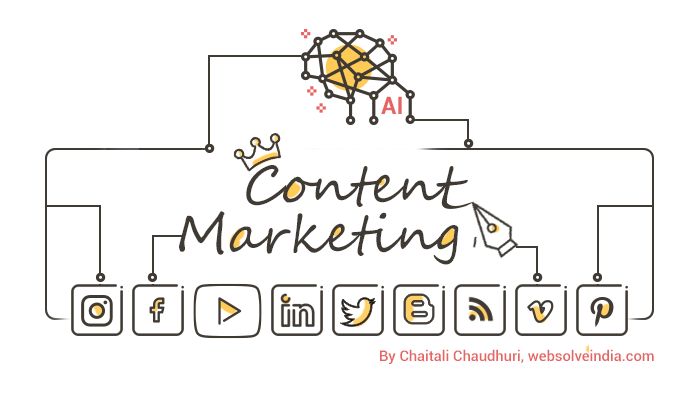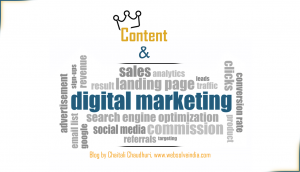Computers have truly come a long way over the decades where they do not just think like a human but are also able to act like one. So what happens when you search for something on Google or any other popular search engine? Even before you can finish typing, suggestions related to your search are immediately prompted to you. It is as though there were really a human sitting on the other side of the machine, reading your mind and giving you exactly what you’re looking for.
Artificial Intelligence: intelligent just like a human
Interacting with users, solving problems and addressing their queries in real time, computer programs have become intelligent enough to act just like normal humans. And all this is becoming possible through the power of Artificial Intelligence (AI) – machine-learning algorithms that are helping companies tap into large chunks of data available for each specific user, based on their browsing history or buying behaviour in the past.
AI impact on marketing
So what do these companies do with all the user data, one might ask. It’s also natural to be slightly worried knowing that someone is keeping a watch over what you look up on the internet or what you buy. Well, it’s not exactly what it sounds or looks like. Machine-reading programs that use AI are actually a very powerful tool for marketers.
If companies know what exactly users are looking for online to meet their needs, they can save a huge amount of their time, energy and money spent on marketing their products. With real-time user data available, these companies can channelize their efforts into formulating such marketing strategies for their target audience that delivers exactly what the latter needs or is looking for online.
Artificial Intelligence content creation is helping companies boost revenues
Amazon and Netflix are the best examples here. By using AI machine-learning algorithms, these companies can actually gauge your general preferences based on what you purchased or were looking for during your last visit to the website. Accordingly, they can create and market relevant content for their customers, saving a lot of time and effort spent in content creation. When companies know, based on real-time user data available, on what each person is reading online, what their general tastes are, they can then propose relevant suggestions to the users and even sometimes lead them into buying those products too, thereby increasing earnings.
There’s something good in it for users as well
AI is helping users in general as well. With Google prompting search words that match your intended query, you end up saving that effort in typing the whole thing out. Just drop down and select one from the several suggestions prompted in the search box and you’re done! Then, AI-generated content is the new trend most companies are following these days to engage more with their users, give them a real-time interaction experience, help solve their problems, and also address queries if any.
Chatbots are a perfect example here. Facebook messenger uses chatbots to interact with its users, wherein each user query is followed by automatically generated responses, which actually seem to be coming from human customer support executives. The entire conversation is made possible through AI machine-learning data, providing customers a satisfactory and personalized user experience on the site.
It might be safe to say then that it’s not very far when AI will change the way content is marketed, promising mutual benefits to companies and customers both.



